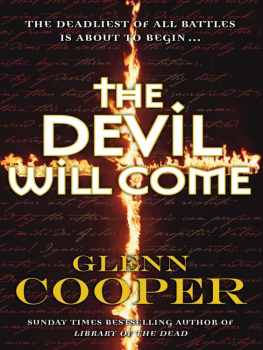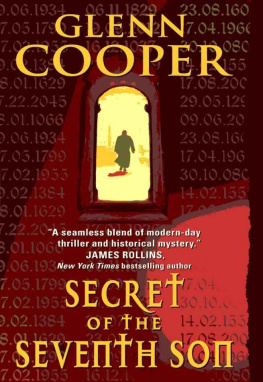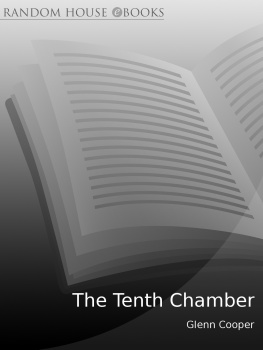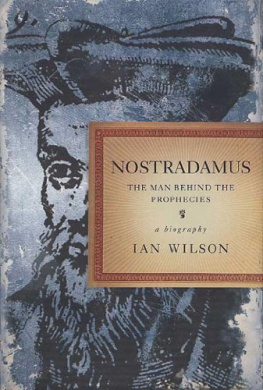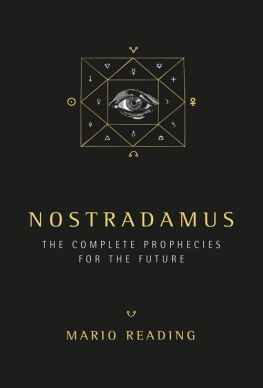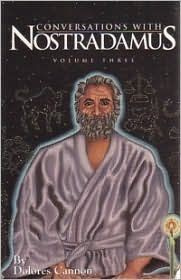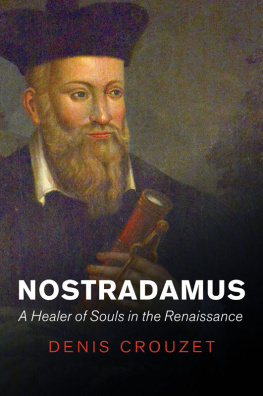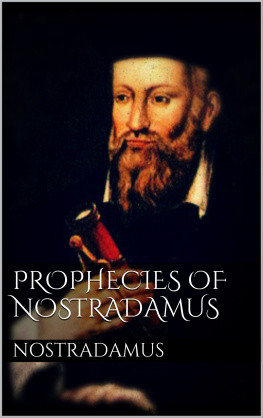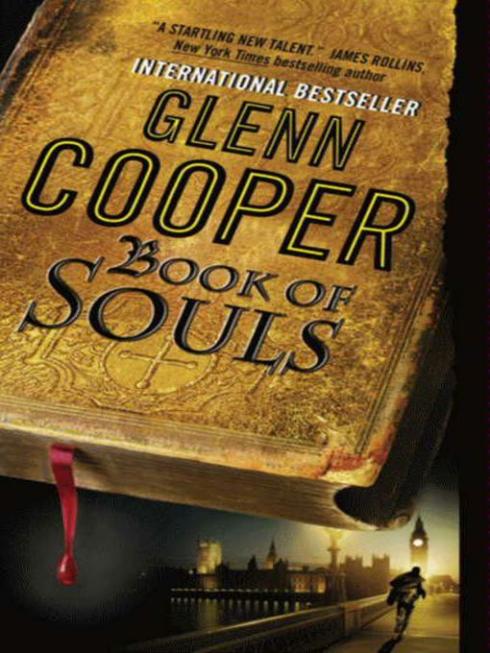Book of Souls
Only a handful know it exists
It holds the worlds most astonishingand terrifyinginformation
But the one book that is the key to the greatest secret of all timeis missing.
Former FBI Special Agent Will Piper solvedand survivedthe Doomsday Killer caseand his reward was a forced early retirement. But the shattering truths he learned about the governments most covert operations wont let him restand now hes on the trail of a mysterious volume thats been lost for six centuries. This is the book that inspired Shakespeare and the prophecies of Nostradamus, and once Will gets his hands on it his life will be worth nothinghis death sentence a top priority handed down from the very highest levels of power.
Because there are some truths too dangerous for anyone to knowthose that concern the future, world dominationand the end of everything.
BOOK OF SOULS
A Novel by
Glenn Cooper
Book 2 in the
Will Piper Series
Copyright 2010
by Glenn Cooper
PROLOGUE
After thirty-odd years in the rare-books business, Toby Parfitt found that the only time he could reliably and deliciously muster a frisson of excitement was the moment when he would delicately stick his hands into a packing crate fresh from the loading dock.
The intake-and-catalogue room of Pierce & Whyte Auctions was in the basement, deeply insulated from the rumbling traffic of Londons Kensington High Street. Toby was content to be in the silence of this comfortable old workroom, with its smooth oak tables, swan-neck lamps, and nicely padded stools. The only noise was the pleasant rustling of handfuls of shredded packing paper as he scooped them out and binned them, then, disconcertingly, asthmatic breathing and a thin-chested wheeze intruded.
He looked up at the blemished face of Peter Nieve and grudgingly acknowledged him with a perfunctory bob of his head. The pleasure of discovery would, alas, be tainted. He couldnt tell the youth to bugger off, could he?
I was told the lot from Cantwell Hall was in, Nieve said.
Yes. Ive just opened the first crate.
All fourteen arrived, I hope.
Why dont you have a count to make sure?
Will do, Toby.
The informality was a killer. Toby! No Mr. Parfitt. No sir. Not even Alistair. Toby, the name his friends used. Times had certainly changedfor the worsebut he couldnt summon the strength to buck the tide. If a second-year associate felt empowered to call the Director of Antiquarian Books, Toby, then he would stoically bear it. Qualified help was hard to find, and young Nieve, with his solid second in Art History from Manchester, was the best that 20,000 could buy nowadays. At least the young man was able to find a clean shirt and a tie every day, though his collars were too generous for his scrawny neck, making his head look like it was stuck onto his torso with a dowel.
Toby ground his molars at the deliberate and childlike counting-out-loud to fourteen. All here.
Im so glad.
Martin said youd be pleased with the haul.
Toby rarely made house calls anymore. He left them to Martin Stein, his Deputy Director. In truth, he loathed the countryside and had to be dragged, kicking and screaming, out of town. On occasion, a client would have some real gems, and Pierce & Whyte would try to wheedle itself in to snatch business away from Christies or Sothebys. Believe me, he assured his Managing Director, if I get wind of a Second Folio or a good Bront or Walter Raleigh out there in the provinces, I will descend on it at warp speed, even if its in Shropshire. From what he was led to understand, Cantwell had a trove of fair to middling material, but Stein had indeed told him he would enjoy the diversity of the consignment.
Lord Cantwell was typical of their clientele, an elderly anachronism struggling to maintain his crumbling country estate by periodically selling off bits of furniture, paintings, books, and silver to keep the taxman at bay and the pile from falling down. The old boy sent his really good pieces to one of the major houses, but Pierce & Whytes reputation for books, maps, and autographs put it in leading position to land this slice of Cantwells business.
Toby reached his hand into the inside pocket of his form-fitted Chester Barrie suit and extracted his thin white-cotton specimen gloves. Decades earlier, his boss had steered him to his Savile Row tailor, and, ever since, he had clothed himself in the best fabrics he could afford. Clothes mattered, and so did grooming. His bristling moustache was always perfectly trimmed, and visits to his barber every Tuesday lunchtime kept his gray-tinged hair unfailingly neat.
He slid on the gloves like a surgeon and hovered over the first exposed binding. Right. Lets see what we have.
The top row of spines revealed a matched set. He plucked out the first book. Ah! All six volumes of Freemans History of the Norman Conquest of England18771879, if I recall. He opened the cloth cover to the title page. Excellent! First edition. Is it a matched set?
All firsts, Toby.
Good, good. They should go for six hundred to eight hundred. You often get mixed sets, you know.
He laid out all six books carefully, taking note of their condition before diving back into the crate. Heres something a bit older. It was a fine old Latin Bible, Antwerp, 1653, with a rich, worn, calf binding and gilt ridges on the spine. This is nice, he cooed. Id say one fifty to two hundred.
He was less enthusiastic about the next several volumes, some later editions of Ruskin and Fielding in dodgy condition, but he grew quite excited at Frasers Journal of a Tour Through Part of the Snowy Range of the Himala Mountains, and to the Source of the Rivers Jumna and Ganges, 1820, a pristine first. I havent seen one of these in this state for years! Marvelous! Three thousand, easily. My spirits are lifting. Tell me, there wouldnt be any incunabula in the collection? From the perplexed expression on the youths face, Toby knew he was tapping a dry hole. Incunabula? European printed books? Pre-1501? Ring a bell? The young man was clearly stung by Tobys irritability, and he flushed in embarrassment. Oh, right. Sorry. No incunabula whatsoever. There was something on the oldish side, but it was handwritten. He pointed helpfully into the crate. There it is. His granddaughter wasnt keen on parting with it.
Whose granddaughter?
Lord Cantwell. She had an unbelievable body.
We dont, as a habit, make reference to our clients bodies, Toby said sternly, reaching for the broad spine of the book.
It was remarkably heavy; he needed two hands to drag it out securely and lay it on the table.
Even before he opened it, he felt his pulse race and the moisture dissipate from his mouth. There was something about this large, dense book that spoke loudly to his instincts. The bindings were smooth old calf leather, mottled, the color of good milk chocolate. It had a faintly fruited smell, redolent of ancient mold and damp. The dimensions were prodigious, eighteen inches long, twelve inches wide, and a good five inches thick: a couple of thousand pages, to be sure. As to weight, he imagined hoisting a two-kilo bag of sugar. This was much heavier. The only markings were on the spine, a large simple hand-tooled engraving, incised deeply into the leather: 1527.
He was surprised, in a detached way, to see his right hand trembling when he reached out to lift the cover. The spine was supple from use. No creaking. There was a plain, unadorned, creamy endpaper glued onto the hide. There was no frontispiece, no title page. The first page of the book, the color of butter, roughly uneven to the touch, began without exposition, racing into a closely spaced handwritten scrawl. Quill and black ink. Columns and rows. At least a hundred names and dates. He blinked in a large amount of visual information before turning the page. And another. And another. He skipped to the middle. Checked several pages toward the end. Then the last page. He tried to do a quick mental calculation, but because there was no pagination, he was only guessingthere must have been well over a hundred thousand listed names from front to back.


